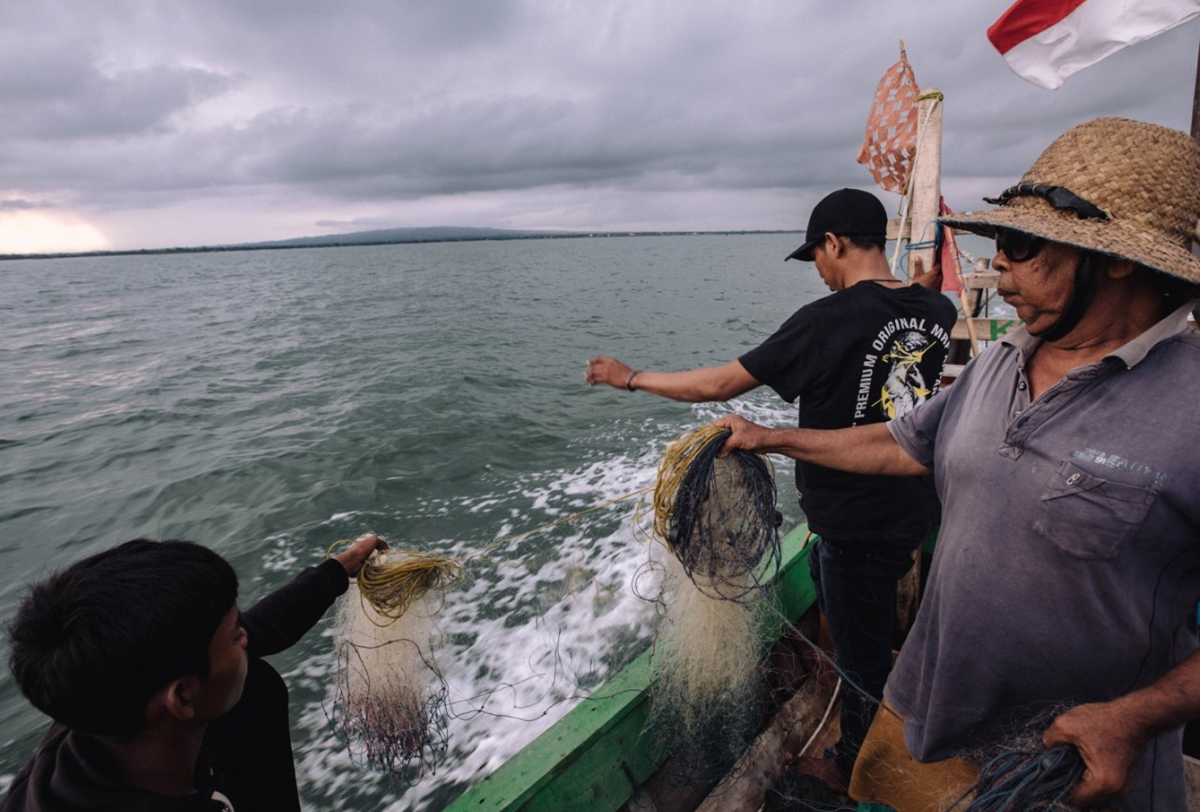By: Kristin Kleisner, Marie Hubatova, and Karly Kelso
Recent geopolitical shifts and trade tensions have rocked the international community, and our vast oceans, far from being immune, are often on the front lines. Read More
By: Kristin Kleisner, Marie Hubatova, and Karly Kelso
Recent geopolitical shifts and trade tensions have rocked the international community, and our vast oceans, far from being immune, are often on the front lines. Read More
The 10th annual Our Ocean Conference (OOC) in Busan, South Korea is happening this week, and we are glad to join the conversation on several topics relevant to our work. This year, the conference is set to discuss “digital oceans,” taking a look at the use of technology in ocean spaces as a tool for supporting sustainability.
Here is a look at some highlights from EDF’s engagement at this year’s conference. Read More
By: Ben Fasciano
The Philippines’ Cabalian Bay is beautiful on a calm evening in October, its still waters fringed with mountains and mangroves. The wealth of natural resources in this region contributes significantly to local livelihoods, food security, and economic development. Yet, these natural resources are under threat. Natural disasters, including mudslides, typhoons, and floods, have caused devastating losses of life and livelihoods in the past 20 years. Read More

Women group in Muara Gading Mas making cookies from powder made from blue swimming crab shells. (Photo Credit: Meutia Isty/EDF)
By: Onesya Damayanti, M. Khazali, and Meutia Isty
“Fishing with trawl must be stopped because it has increasingly reduced my husbands’ blue swimming crab catches,” Sunamah stated confidently during the Lampung Blue Swimming Crab Co-Management meeting on March 5, 2024, representing women groups. Speaking in an official forum of about 50 participants, predominantly male government officials, was something she had never imagined possible before. Read More
By: Aubrey Taylor
Tropical Storm Oscar crept up from the North Atlantic Ocean at a leisurely 40 miles per hour on the morning of Oct. 19, 2024 and ambled toward the Turks and Caicos Islands. Based on the data available, meteorologists believed the tiny storm was unlikely to cause major damage. Yet only three hours later, Oscar’s wind speeds had somehow doubled to a destructive 80 miles per hour—and the tropical storm was now, undeniably, a Category 1 Hurricane. Read More

Fishers setting the blue swimming crab net in the sustainable fishing zone of Way Kambas MPA. Credit: Wahyu Mulyono/ EDF
By: M. Khazali, Andi Yasser Fauzan, and Meutia Isty Wulandari
The Government of Indonesia has committed to protect its marine ecosystems, pledging to establish 32.5 million hectares of marine protected areas (MPAs) by 2030. This commitment supports the 30×30 target of the Global Biodiversity Framework, which aims to protect 30% of the world’s marine areas by 2030. To date, the country has made significant efforts by establishing 29.28 million hectares of MPA (Ministry of Marine Affairs and Fisheries, 2024). These MPAs serve as sanctuaries focused on conserving marine biodiversity such as coral reefs, sea grass, and mangroves. Read More